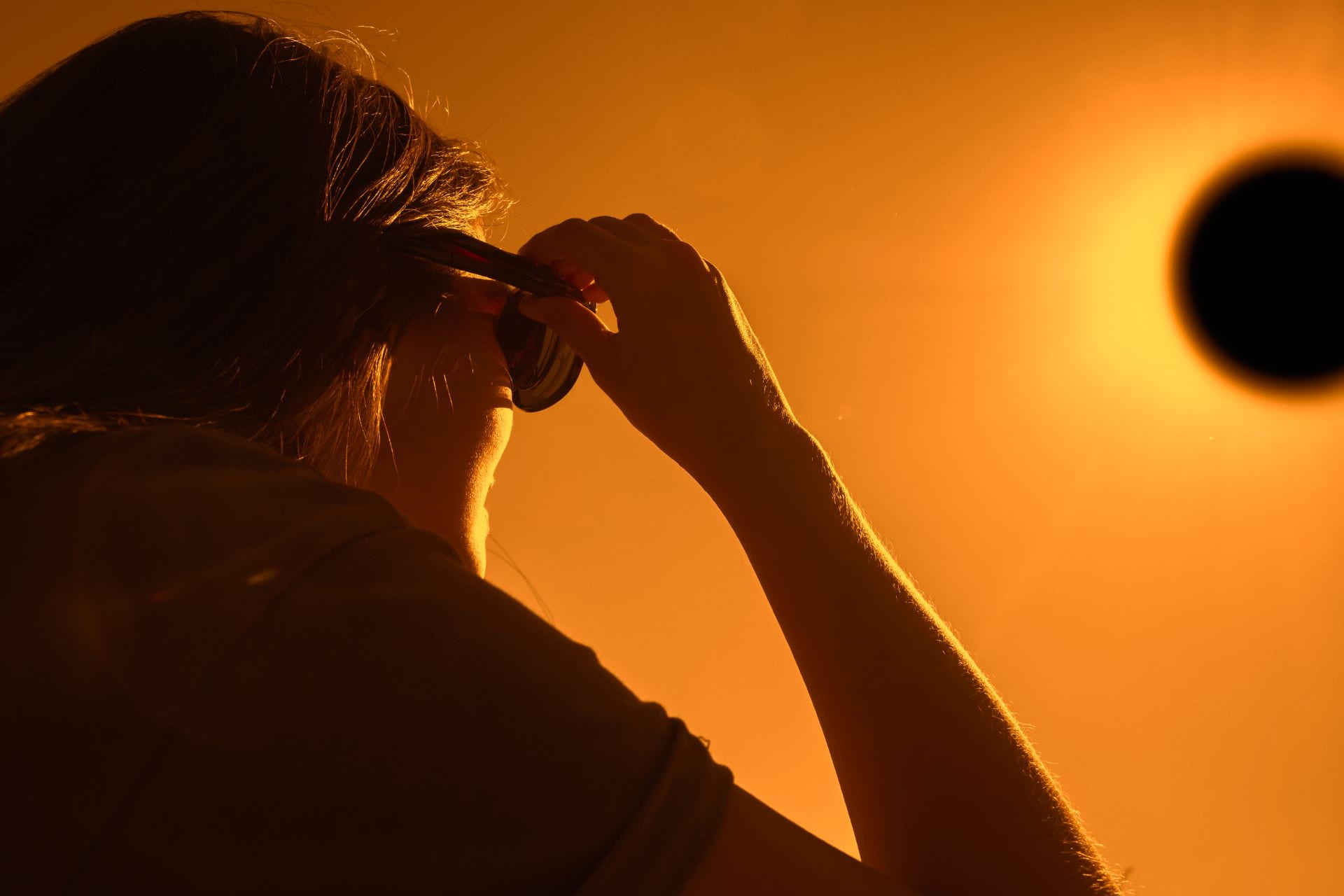On Monday, April 8, the Moon will pass between the Sun and Earth, blocking the face of the Sun, and casting a solar eclipse across North America. In anticipation of this astronomical event, optometrists at the Eye Care Center of Harvard University Health Services (HUHS) share tips for safe viewing.
What will I see during the eclipse?
Depending on your location, you will see either a total or partial solar eclipse. A total solar eclipse can safely (and briefly) be viewed with the naked eye as the Moon will completely block the Sun. Massachusetts will see a partial solar eclipse, meaning a portion of the Sun will be visible. At no time will it be safe to look at the eclipse without specialized eye protection.
What is the special eyewear needed to view the eclipse?
Eclipse glasses or eyewear that meet international standard ISO 12312-2 are the only safe way to view a solar eclipse. You cannot safely view the eclipse in sunglasses or through unfiltered telescopes. The American Astronomical Society has compiled an extensive list of reputable manufacturers and retailers of this eyewear.
During the eclipse, do not look up before putting on your eclipse eyewear. If you normally wear glasses, place your eclipse viewers over them before looking up. Turn away from the sun and remove this eyewear after viewing. Do not remove eyewear while looking at the sun. Incorrect viewing can result in distorted vision or loss of vision.
Is there an alternative to eclipse eyewear?
Yes! You can create a pinhole projector to indirectly view the eclipse using two sheets of paper and a thumbtack. Simply follow these instructions:
- Take a sheet of paper and make a tiny hole in the middle using a pin or a thumbtack. Make sure that the hole is round and smooth.
- With your back towards the sun, hold the paper above your shoulder allowing the sun to shine on the paper from behind you.
- Hold a second sheet of paper with your other hand in front of you. Align the two pieces of paper so that you see an inverted image of the sun projected on the second page. Essentially, the second page will act as a projection screen.
If you should experience eye discomfort or vision problems, please reach out to the Eye Care Center of HUHS at 617-495-2068.
